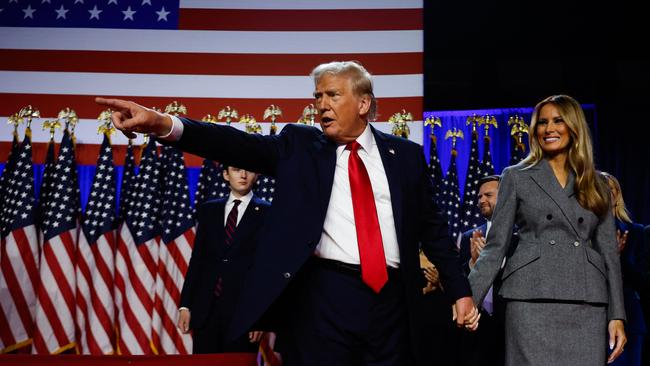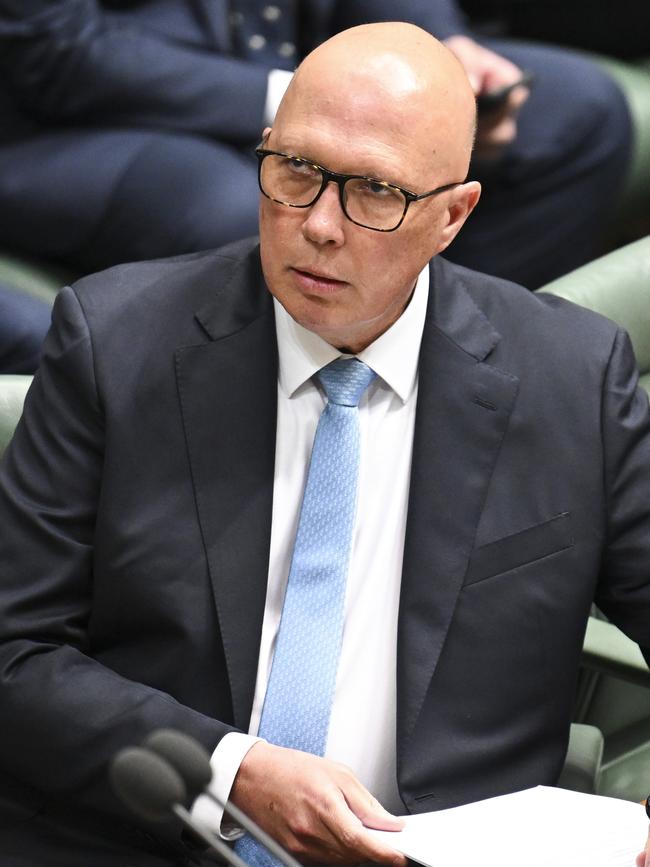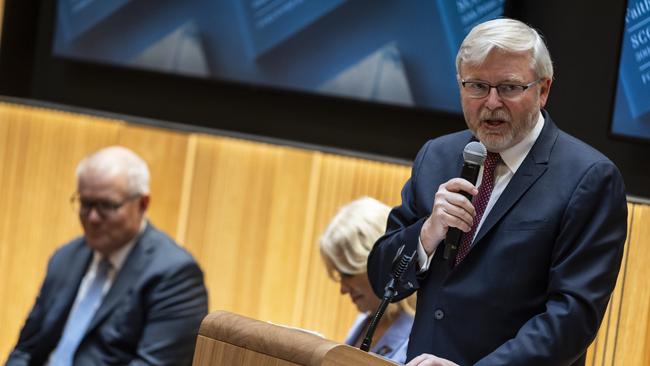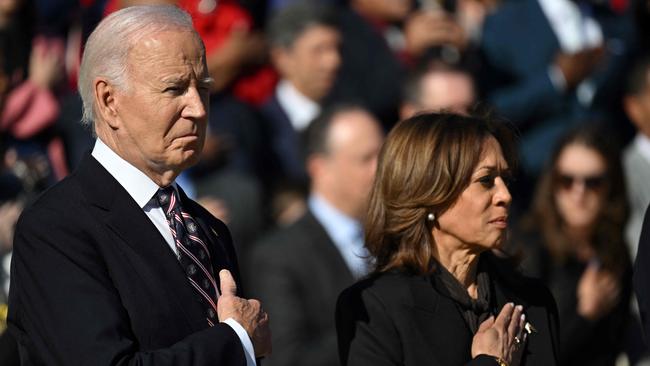
Contrary to almost everything you hear at present, Trump’s success will not determine the result of the next Australian election. The immediate reaction, filled with hype and hypocrisy, is seen in two manifestations. The first is Trump Appeasement Syndrome (TAS), with populist conservatives calling for concessions to be made to Trump – their tactic being to create conflict between the Albanese government and Trump as a means of undermining Anthony Albanese at the next election.
The second is Progressive Denial Syndrome (PDS), where Australian progressives stick by their stereotypical view of Trump as a threat to democracy and symptomatic of a racist, sexist, misogynist American public – showing progressives are incapable of learning about their own failures from Trump’s victory.
The wild ride about to engulf US politics will have loads of blowback across Western democracies, including Australia. The Coalition, led by Peter Dutton, is targeting Labor, convinced it cannot deal with Trump, making this an issue even before Trump is sworn in or has cleared his throat, its targets being Albanese, Penny Wong and, most immediately, Kevin Rudd. The logic is obvious: if Albanese cannot deal with Trump, he cannot manage the transformed world in which Australia must live.


What is vital here is the atmospheric. Trump’s win has emboldened the conservative movement in this country – media, ideologues, security champions, nut jobs and the right wing of the Coalition. To say they feel empowered doesn’t begin to describe it. They see a version of Trump as being Australia’s best future and will use Trump as an instrument to damage Labor and a model Dutton should embrace.
Coalition politicians have refined their lines – it’s “up to Albanese” to prove he can deal with Trump. You get the subtext. Rudd is the first target. The populist conservatives want to destroy Rudd as a means of weakening Albanese. That Rudd has been an effective ambassador in Washington is irrelevant to them. They don’t care.
Rudd is depicted by the pro-Trump media in this country as an unforgivable insult to Trump and must be offered up as a ritual sacrifice – part of Trump Appeasement Syndrome, a case of Australia acting even before Trump has said anything. This shows a contempt for Australian sovereignty and a craven weakness before Trump. For any Americans wasting their time following this saga, we must look a sad, pathetic little country.
But this is just the start. The pro-Trump conservatives are already agitating for Australia – or at least the Coalition – to ditch its hard-won net zero at 2050 policy and follow Trump out of the Paris Agreement like a mob of surrender monkeys incapable of having their own mind or integrity. Can you imagine a more spineless Australian action?
The unleashed populist conservatives may do Albanese some harm but the real threat they pose is to Dutton. Since Scott Morrison’s achievement in carrying the Coalition to net zero at 2050, Morrison and Dutton have striven to transform the climate debate on their side – it is no longer “do we believe in climate change action?” but “what is the best way to get to net zero?”. Hence Dutton’s nuclear policy.
Dutton won’t surrender to such pressures. That’s a given, but misses the point. The pro-Trump agitators and their media backers are likely to generate enough support and noise on the Coalition fringe that the spectre of a divided party will be revived. This helped to ruin both the Turnbull and Morrison governments. In this situation the big winners in 2025 would be Labor and especially the teals. The idea of Coalition regression on climate policy is little short of madness, yet for the agitators, Trump is a messiah to be followed.

As for the progressives, the depth of their denial confounds rationality.
Progressive Denial Syndrome extends to the three big policy issues of the US election – the economy, immigration and identity politics. The truism about the US election is that the economy – high prices and the sense of people “being worse off” – was the main issue. Well, you don’t stop there. This is a failure of progressive economic policy since that was the entire meaning of Joe Biden’s rejected presidency.
Massive government spending didn’t work. Huge efforts to compensate people for higher prices didn’t work. Expectations that big spending would deliver political rewards didn’t work. Biden began with a $1.9 trillion fiscal package that the Brookings Institute said would risk higher inflation, and it didn’t work in policy or political terms.
Have you seen a single progressive in Australia make this point? Of course not. They are incapable of admitting the US election is a judgment on spending.
The related point, a heresy not to be discussed in polite society, was raised by US-based economist Steven Hamilton in the Financial Review on Tuesday – namely that the American public would have preferred higher unemployment if that meant a tougher attack on high inflation. This contradicts the deepest faith of progressive politicians and many central banks, certainly the Reserve Bank of Australia.
Hamilton raises the prospect that the Reserve Bank in conducting a monetary experiment – with Labor’s encouragement – made the blunder of tolerating “too-high inflation and too-low unemployment”. If high US prices for too long was the core problem, then the policy was wrong and the inflation/unemployment trade-off was wrong. Many people will furiously reject this view. Fine. But the proposition cannot be ignored given the US election result.
On immigration, the story is obvious. Border security is non-negotiable and the Biden-Harris administration refused to believe it. Labor’s problem is different – it has presided over excessive high immigration and has been inept in its reduction. Dutton will run on immigration and make guaranteed electoral capital from Labor’s misjudgments.
The Democratic Party is significantly to the left of the Labor Party, with identity politics highlighting this truth. One of the deepest faiths of the Democrats is that identity determines your vote – hence the coalition of minorities that the Democrats have long cultivated in US politics. But the Harris defeat has trashed this ideology.

Kamala Harris was neither proud to champion identity politics nor able to disown it – a tragic dilemma described by Helen Lewis in The Atlantic. Harris was trapped, hostage to the idea of identity politics and intimidated out of its advocacy. It is the evolving progressive crisis – with most US progressives (let alone their Australian counterparts) still unable to grasp that identity politics is ultimately incompatible with liberal democracy.
Trump gets it. Trump turned identity and woke into an electoral plus for himself, slicing into the Latino and black vote and winning a majority of white women. As Maureen Dowd said in The New York Times “some Democrats are finally waking up and realising that woke is broke”.
But how many? Identity politics has a weaker hold on Australia but is still championed by our elites. The upshot is that Harris’s defeat is unlikely to provoke any progressive reassessment in Australia.
Consider what many saw as Trump’s most successful ad – about Harris supporting gender-affirming care for prison inmates paid for by taxpayers, with one ad saying: “Kamala’s for they/them. President Trump is for you.”
This applied to an extremely tiny number of people. But its message was for the entire nation – it said Harris’s beliefs and priorities were flawed. The point is identity politics is about core beliefs; that’s why it always matters. Trump exposed the Democrats on core beliefs that a majority of Americans don’t accept. This is relevant for Australia but Progressive Denial Syndrome looks the other way.








Every sign is that Donald Trump, the great disrupter, is going to disrupt Australian politics. But before this takes hold, let’s do a reality check – Trump is not popular in Australia, his agenda is littered with risks and traps for Australia, and, depending upon his early decisions, Trump may get very unpopular very quickly in this country.